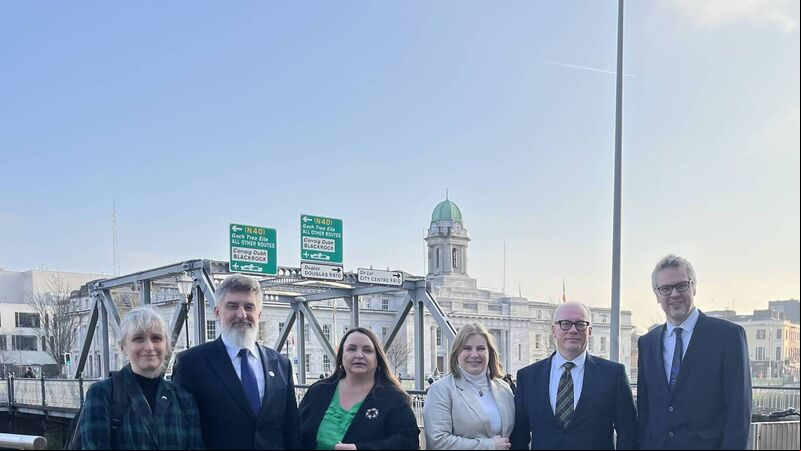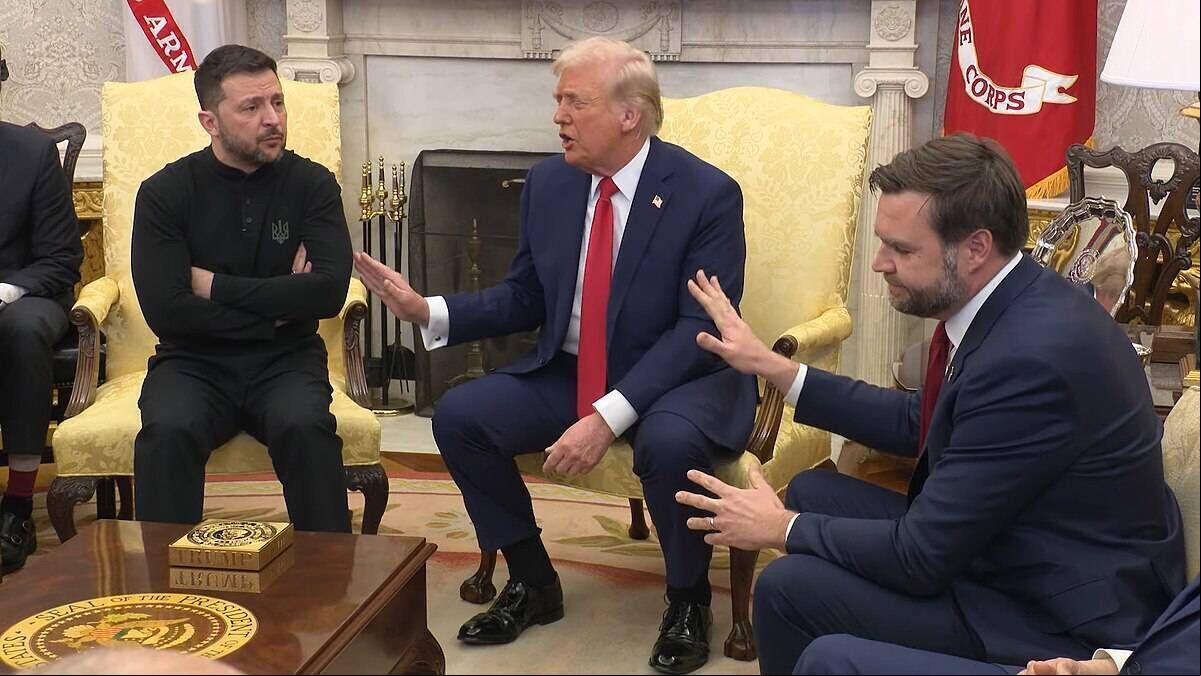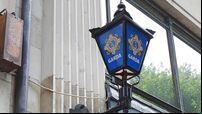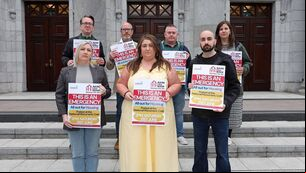Analysis: Ireland must question cost of neutrality

Pictured in Cork ahead of a UCC discussion entitled 'Russian Aggression: Lessons Learned': Estonian ambassador Kairi Künka, Polish head of mission Artur Michalski, Ukrainian abassador Gerasko Larysa,Finnish ambassador Leena Gardemeister, Lithuanian ambassador Jonas Grinevičius, and Latvian ambassador Juris Štālmeistars. Picture: Donal O'Keeffe
“All of our countries have experienced being part of Russia, being occupied by Russia, or being invaded by Russia,” said Ukrainian ambassador Gerasko Larysa.








 App?
App?


